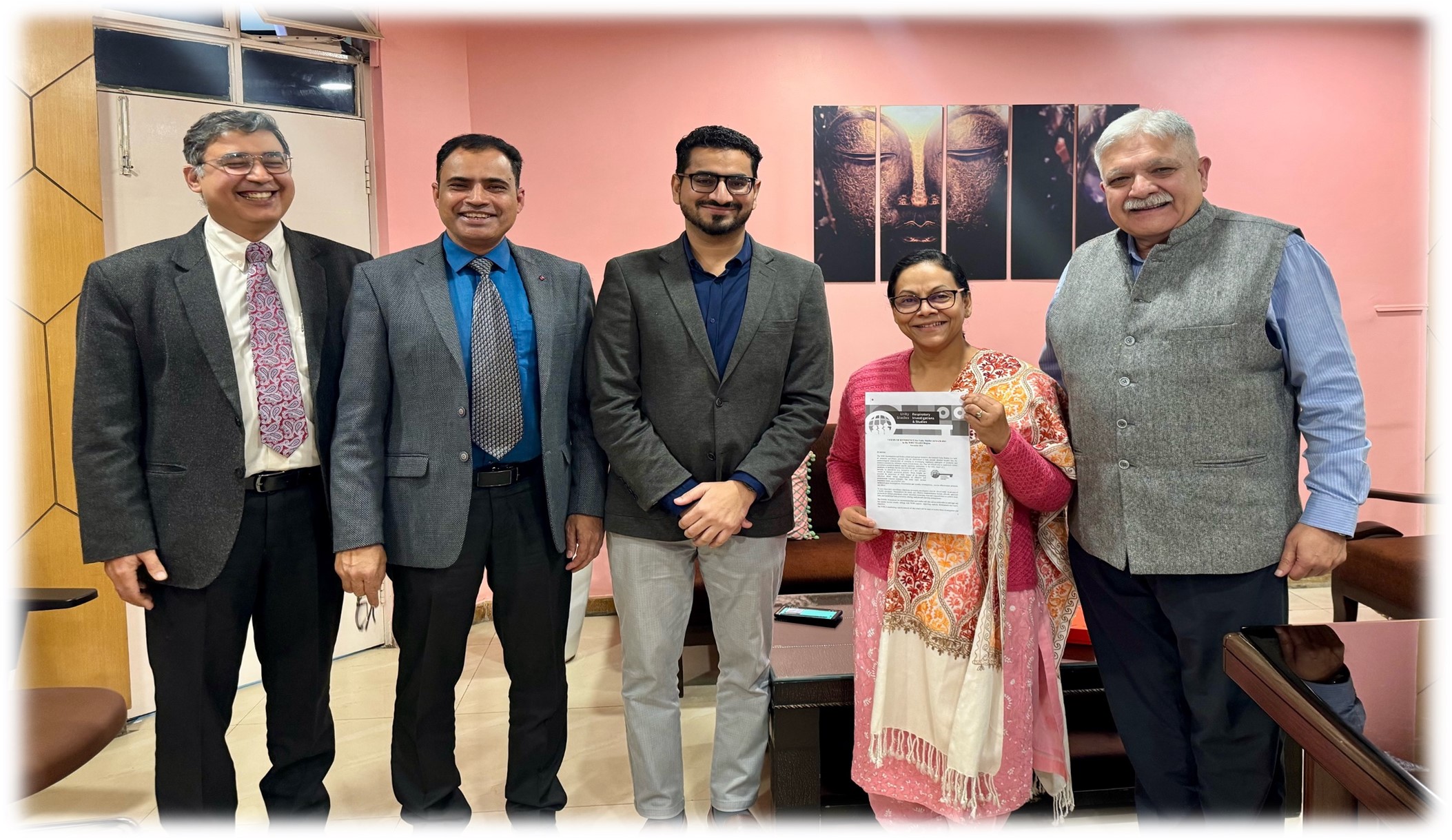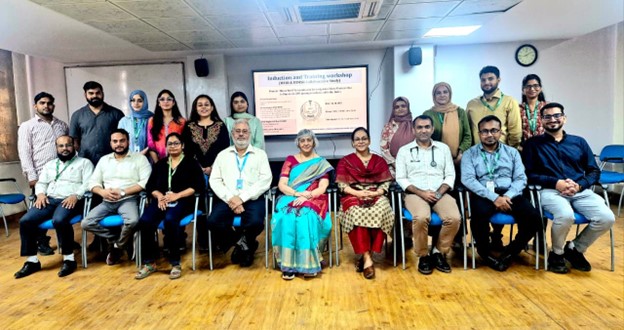As countries continue to reinforce their pandemic preparedness through health systems during the interpandemic period, the World Health Organization’s (WHO) Global Influenza Surveillance and Response System (GISRS) Investigations & Studies Global Initiative, known as Unity Studies, remains a vital framework for respiratory pathogen pandemic preparedness. These standardized protocols enable countries to generate rapid, high-quality data on transmissibility, infection severity, population immunity, and the effectiveness of interventions.
To showcase how Unity Studies protocols are being adapted to national contexts, the WHO Headquarters, in collaboration with WHO Regional offices including the WHO South-East Asia Regional Office (SEARO), recently hosted a global webinar. The session featured case studies from India and the United Kingdom (UK), highlighting innovative approaches to respiratory virus surveillance and pandemic readiness.
The webinar was opened by Dr. Wenqing Zhang, Head of the Global Influenza Programme at WHO Headquarters, who emphasized the importance of Unity Studies in strengthening global pandemic preparedness through harmonized research and equitable participation. The session was moderated by Dr. Nicki Boddington, consultant in the same unit.
During the webinar, Dr. Jamie Bernal-Lopez from the UK Health Security Agency (UKHSA) shared England’s experiences in implementing the First Few X (FFX) Cases and Contacts protocol across a range of public health scenarios. These scenarios included the COVID-19 pandemic, investigations into single human cases of avian influenza A(H5N1), and a cross-governmental simulation exercise (SimEx). Dr Bernal-Lopez highlighted how the FFX protocol was adapted to rapidly collect standardized epidemiological data in each context, enabling early insights into transmission dynamics, disease severity, risk factors and allowing for swift, evidence-based public health responses.
India: HIMSR’s role in adapting Unity studies protocols for Household Transmission Investigations in SEAR
A highlight of the webinar was the presentation by Professor Dr. Farzana Islam, Head of Community Medicine at the Hamdard Institute of Medical Sciences & Research (HIMSR), New Delhi representing the South-East Asia Regional chapter of the Unity Studies Network. She shared the experience in adapting and plans for piloting the Household Transmission Investigation (HHTI) Unity Studies Protocol to study Influenza A, Influenza B, and Respiratory Syncytial Virus (RSV) among residents in Delhi.
HIMSR, a research institution under Jamia Hamdard University, formally joined the WHO SEAR Unity Studies Network in December 2024 after signing/acknowledging the Terms of Reference (ToR) of the network. The institute has also previously collaborated with the WHO SEARO and the WHO Country Office (WCO) for India, in successfully implementing Unity Studies protocols during the COVID-19 pandemic.

Official signing and acknowledgement of the WHO SEAR Unity Studies ToR by HIMSR. (Photo Credit: HIMSR/India)
The current study, adapted from WHO’s global Unity Studies protocols, aims to:
- Estimate household secondary attack rates
- Understand transmission dynamics
- Assess infection severity and risk factors in urban settings
From a feasibility and relevance perspective, HIMSR tailored laboratory methods, sampling strategies, and data collection tools to suit India’s epidemiological context. Despite challenges such as limited funding, compressed timelines, and rigorous ethical clearance processes, the study has received approval from both HIMSR and WHO SEARO Ethics Review Committees.
The results of the pilot study are expected by late 2025. HIMSR also plans to expand the study to the medical colleges and hospital network across country, further strengthening India’s capacity to monitor and respond to respiratory threats.
Following the webinar, on 16 October 2025, HIMSR conducted an induction and training workshop for research staff as part of the implementing this HHTI protocol. The training focused on protocol implementation, data collection procedures, sample collection methods, and laboratory processes, along with field coordination, to ensure standardized and high-quality execution of the project.
Induction and training workshop for the WHO–HIMSR collaborative Unity Study on influenza and RSV transmission held at HIMSR, New Delhi. (Photo Credit: HIMSR/India)
Regional Coordination and Strategic Support
The implementation of Unity Studies is part of broader regional efforts in pandemic preparedness for influenza and other respiratory pathogens of pandemic and epidemic potential coordinated by WHO SEARO. Technical and operational support for the initiative is provided by WHO Headquarters and WHO Country Offices. Currently the South-East Asia chapter of the WHO Unity Studies network consists of 6 institutions from 5 countries (Bangladesh, India, Nepal, Thailand and Sri Lanka) The majority of institutions have initiated implementing the Terms of Reference of the network with catalytic funding support from the WHO’s South-East Asia regional office.
The piloting of this household transmission investigation study was made possible through strategic catalytic investments using Pandemic Influenza Preparedness (PIP) Partnership Contribution (PC) Fund under the High-Level Implementation Plan III (2024-2030). PIP PC support countries in enhancing preparedness for influenza pandemics. Through these efforts, WHO South-East Asia Region is not only enhancing preparedness for influenza pandemics but also building resilience against a broader spectrum of respiratory threats.
